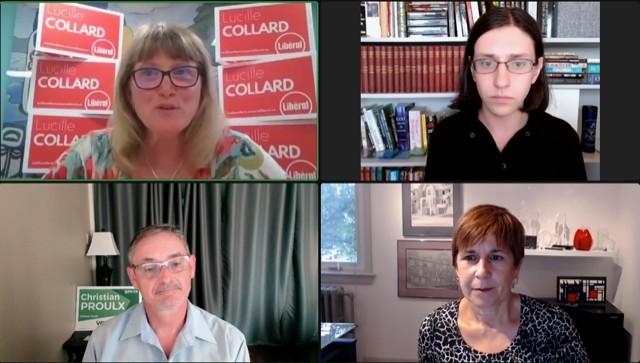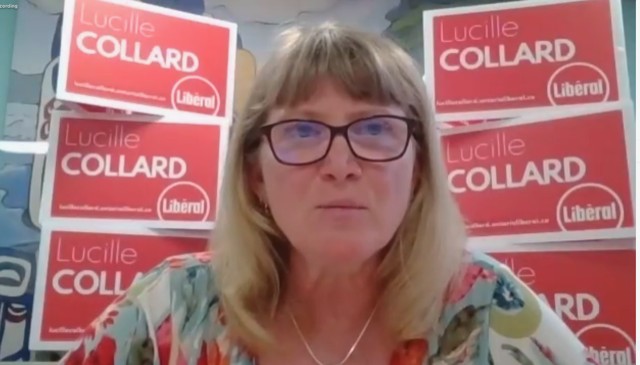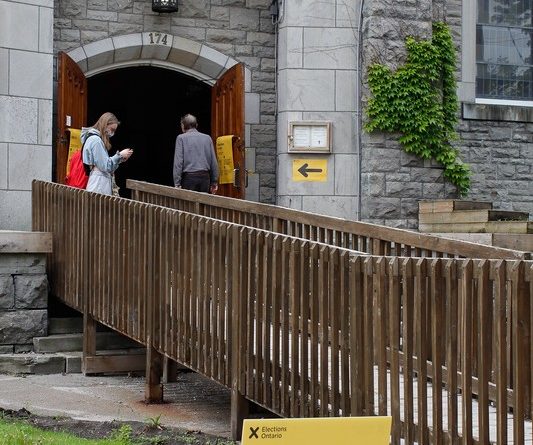Ottawa Vanier riding is still red in a sea of blue
Real issues from downtown neighbourhoods raised (and sometimes ducked) at virtual pre-election debate
John Cockburn
On May 30, Ottawa-Vanier community associations hosted a virtual electoral forum to inform residents about the views of candidates in the June 2 provincial election, particularly those issues most pertinent to the ward. It was attended by Liberal candidate Lucille Collard, Lyra Evans for the NDP and Christian Proulx for the Green Party. Invited, but not attending and who will remain unnamed, were a clutch of fringe candidates including the PC candidate. Up to 100 participants attended the meeting — pretty good turnout. Louise Lapointe and Natalie Belovic ably moderated the session.

By the time you read this in your copy of IMAGE the votes will have been counted and the winner will be known. Being aware of the concerns that emerged from the forum will enable you to see how these concerns are addressed by the provincial government in the future. Holding the government’s feet to the fire and advocating on issues of particular concern are important roles for all MPPs.
At time of writing, the most current polls suggest the PCs will retain their hold on power with slightly more of the popular vote than the last time. How that translates into seats is a topic that at this time is difficult to predict, but there is a strong likelihood of a PC majority government. It appears that the PC strategy of withholding candidate availability will likely have been successful for them though not so much for the democratic process.

Photo Paula Kelsall
On the Ottawa-Vanier front, Liberals have held the riding since 1971 and not too many were predicting a change. Of note are results of the 2020 by-election with the Liberals at 52 % of the vote, twice that of the NDP; the election turnout was 20%. In the 2018 general election, the Liberals garnered 43% to the NDPs 29% with a 50% turnout. The Green Party support doubled between 2018 and 2020 from 4% to 8%. PC support dropped by almost half from 2018 to 2020 20% to 11%. Hardly trends but comparing these to the 2022 results may be interesting. Check the trends at www.elections.on.ca
More specifically on the issues raised at the forum — there were lots, a veritable potpourri: health care and a community health centre for Ottawa-Vanier were identified as needs, as was repealing Bill 124 that limits salary increases for nurses, and the accreditation of foreign health professionals.
Affordable housing and homelessness generated discussion particularly with respect to the Salvation Army project on Montreal Road. The Liberal candidate remained opposed to the model being proposed and preferred more emphasis on the centre being a service delivery point rather than a residence provider. The Green Party opposed the size of it, and the NDP candidly felt that the ship had sailed on the project.
Affordable housing meant more densification for the Greens with housing being a social right deserving public subsidy for the NDP. On heritage, the Greens interestingly opined that heritage means continuity of culture, not just buildings.
The issue of interprovincial traffic generated some opposing views that may strike a chord with some affected communities. The Liberal candidate felt further study on the potential for re-routing as the way to minimize traffic levels might obviate the need for more infrastructure. The Greens were for a tunnel while the NDP were pro bridge and felt a tunnel would restrict options for an as yet unheard-of east-west subway.
Education issues included the need to mitigate the effect of COVID measures on student sociability, limits on class size, special needs for indigent groups, cancelling the EQAO standard system, and providing a Grade 13 option. One of few partisan interventions occurred when the NDP candidate accused the previous Liberal government of lack of support for the provincial education system.
Developer influence on local government planning decisions, electoral contribution limits, support for the Indigenous community, delivery of long-term care improvements were all discussed, and one was left with the impression that no one said anything that the others would strenuously disagree with.
Although there was a multiplicity of issues discussed there were a couple of elephants in the room. There was no substantive discussion of the Freedom Convoy occupation in February and the lack of provincial response. Fundamental issues of police governance with local impact emerged that to a large extent reside in the provincial domain. Further, one would think that a major weather event that wreaked havoc on local infrastructure would have been addressed by those aspiring to provincial office.
Those omissions do not detract from the fact that the forum was a noble effort in the realm of political discourse and can serve as a model for the upcoming municipal elections.

